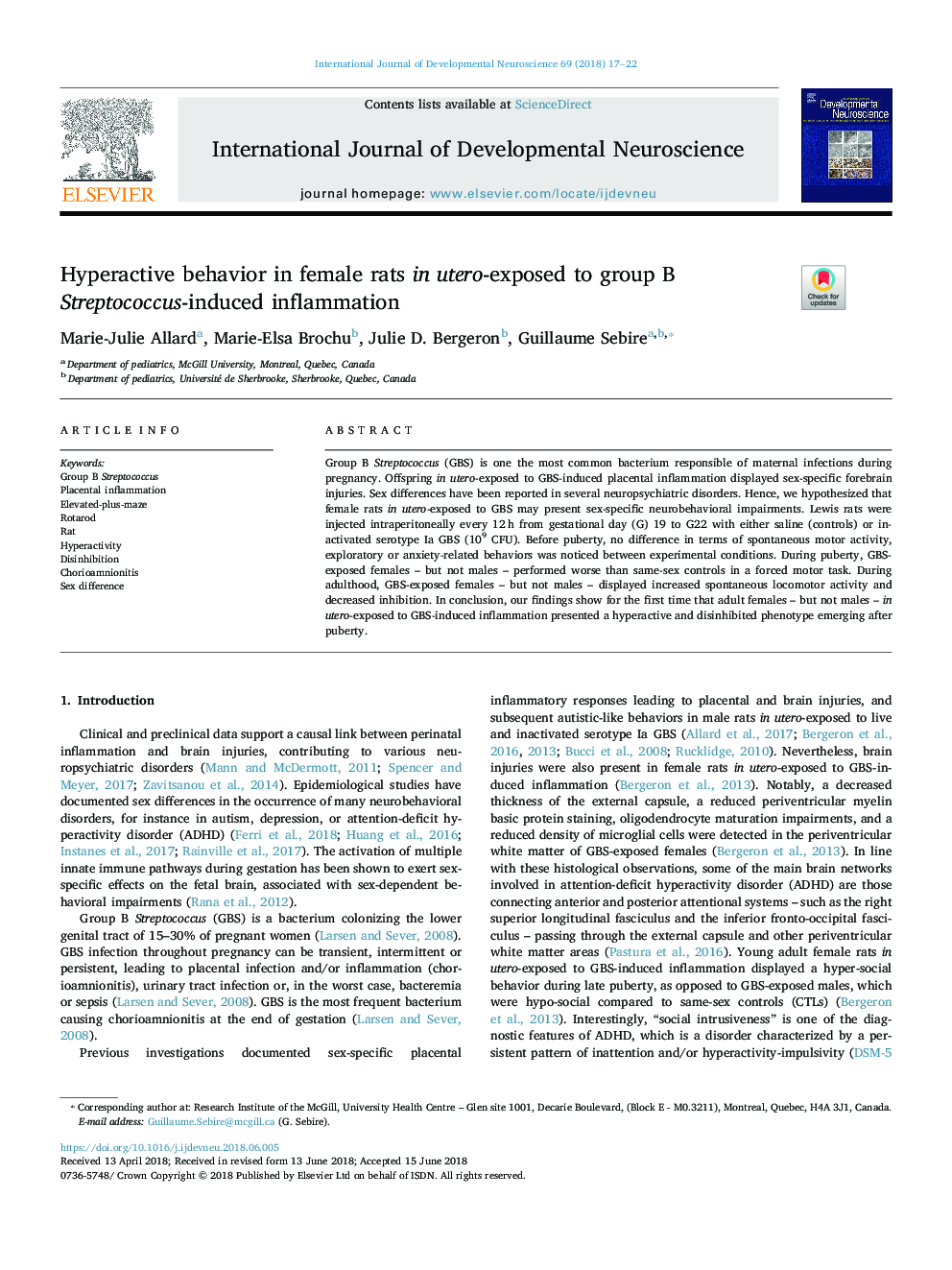| Article ID | Journal | Published Year | Pages | File Type |
|---|---|---|---|---|
| 8626010 | International Journal of Developmental Neuroscience | 2018 | 6 Pages |
Abstract
Group B Streptococcus (GBS) is one the most common bacterium responsible of maternal infections during pregnancy. Offspring in utero-exposed to GBS-induced placental inflammation displayed sex-specific forebrain injuries. Sex differences have been reported in several neuropsychiatric disorders. Hence, we hypothesized that female rats in utero-exposed to GBS may present sex-specific neurobehavioral impairments. Lewis rats were injected intraperitoneally every 12â¯h from gestational day (G) 19 to G22 with either saline (controls) or inactivated serotype Ia GBS (109 CFU). Before puberty, no difference in terms of spontaneous motor activity, exploratory or anxiety-related behaviors was noticed between experimental conditions. During puberty, GBS-exposed females - but not males - performed worse than same-sex controls in a forced motor task. During adulthood, GBS-exposed females - but not males - displayed increased spontaneous locomotor activity and decreased inhibition. In conclusion, our findings show for the first time that adult females - but not males - in utero-exposed to GBS-induced inflammation presented a hyperactive and disinhibited phenotype emerging after puberty.
Keywords
Related Topics
Life Sciences
Biochemistry, Genetics and Molecular Biology
Developmental Biology
Authors
Marie-Julie Allard, Marie-Elsa Brochu, Julie D. Bergeron, Guillaume Sebire,
